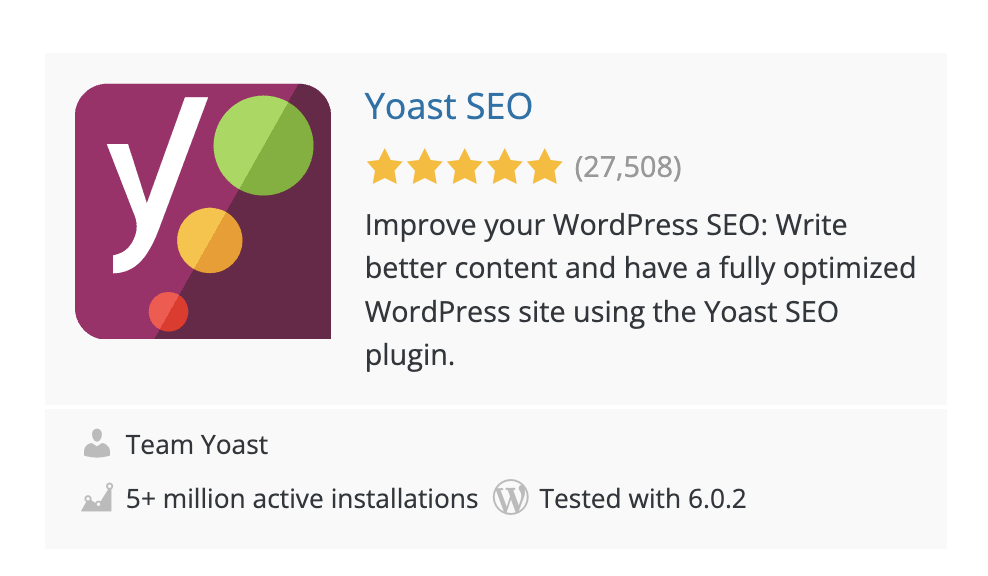Do you know that there are tools that can assist you in optimizing your blog content for search engine optimization (SEO)? Even if you’re not an expert on internet marketing, it doesn’t mean that you cannot conduct a blog that ranks high on search engines. If you want to make your blog accessible to more users and potential followers, then investing in SEO tools is the best way to do so. These tools will help you identify which keywords your content should target, track website performance, monitor backlinks and much more. Here are the four best SEO tools every blogger needs to know about:
Yoast SEO
Yoast SEO is a powerful WordPress SEO plugin that can be used to optimize your content for search engines. It has a user-friendly interface that allows you to easily select and optimize your blog posts using a few simple clicks. Moreover, this plugin also includes a readability analysis tool that will allow you to determine the readability score of your post using the Flesch-Kincaid reading ease test.
You can also use this plugin to optimize your images, set canonical URLs, track the keyword performance of your website, and much more.

Key Strengths: With Yoast SEO, you can easily optimize your content with a few simple clicks. It also allows you to select the most appropriate keywords for your blog posts. Furthermore, this plugin also allows you to set canonical URLs to prevent duplicate content issues.
Key Weaknesses: This plugin doesn’t allow you to select the best URL structure for your blog.
Also Read: Beat the search engines for organic visitors. How can a SEO freelancer help small businesses
SEMrush
SEMrush is a powerful SEO tool that is primarily used to track the performance of your website’s SEO. It allows you to track your website’s pages, domains, keywords, and competitors’ websites to determine your ranking for specific keywords. You can also use this tool to find keywords that you can use for your content and to identify your readership.

Key Strengths: With SEMrush, you can track your website’s performance and determine your ranking for specific keywords. This tool also allows you to find the best keywords for your content.
Key Weaknesses: SEMrush does not offer any tips or suggestions for optimizing your content for search engines. It also doesn’t allow you to set canonical URLs.
Ahrefs
Ahrefs is a powerful SEO and marketing tool that can assist you in conducting a successful content marketing campaign. With this tool, you can track your website’s performance and determine your ranking for specific keywords. You can also use this tool to find the best keywords that you can use for your content. This SEO tool also allows you to track your reader’s engagement and find out which pages your readers are engaging with the most.
Key Strengths: With Ahrefs, you can track your website’s performance and determine your ranking for specific keywords. You can also use this tool to find the best keywords that you can use for your content.
Key Weaknesses: Ahrefs does not allow you to set canonical URLs and it also doesn’t allow you to select the best URL structure for your blog.
SEO Powersuite
SEO PowerSuite is a comprehensive SEO toolkit that allows you to conduct an effective SEO campaign. This toolkit allows you to track your website’s performance, find the best keywords that you can use for your content, and identify your readership’s engagement with your website. You can also use this tool to set canonical URLs, track your backlinks, and much more. You need to download all four components to your computer to use it. It’s not SAAS software, but still super powerful.

Key Strengths: With SEO PowerSuite, you can track your website’s performance and determine your ranking for specific keywords. You can also use this tool to find the best keywords that you can use for your content.
Key Weaknesses: SEO PowerSuite does not allow you to select the best URL structure for your blog.
Google Analytics
If you want to conduct an effective SEO campaign, then you need to know your readers’ engagement with your blog. You can do this using a free SEO tool like Google Analytics. This tool allows you to track your website’s performance and determine your readership’s engagement with your website. It also allows you to set goals, track your content performance, and monitor your website’s traffic pattern.
Key Strengths: With Google Analytics, you can track your website’s performance and determine your readership’s engagement with your website. You can also use this tool to set goals, track your content performance, and monitor your website’s traffic pattern.
Key Weaknesses: Google Analytics does not allow you to select the best URL structure for your blog. It also doesn’t allow you to find the best keywords that you can use for your content.
Conclusion
A successful content marketing campaign requires you to conduct an effective SEO strategy. However, you cannot do so without the aid of SEO tools. With these SEO tools, you can easily conduct a successful SEO campaign and boost your blog’s search engine ranking. If you want to make your blog accessible to more users and potential followers, then investing in SEO tools is the best way to do so. These tools will help you identify which keywords your content should target, track website performance, monitor backlinks and much more.

